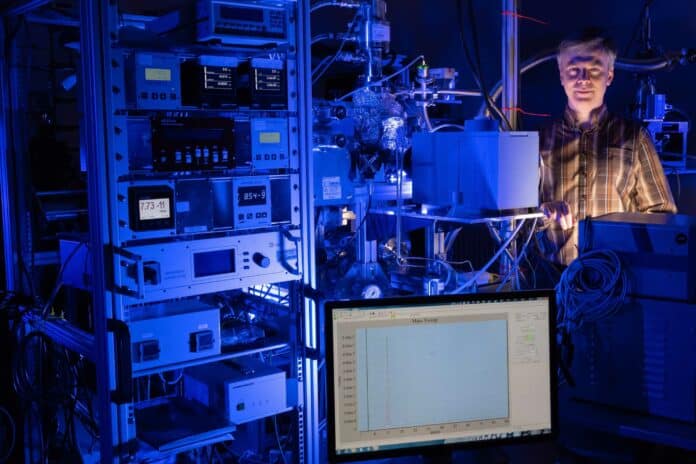Dr. Serge Krasnokutski’s research team at the Astrophysics Laboratory at the Max Planck Institute for Astronomy at the University of Jena has demonstrated that basic peptides can form on cosmic dust particles. It was previously thought that if water was present in the molecular ice that covered the dust particle—which is usually the case—this could not happen.
In collaboration with the University of Poitiers, France, scientists have discovered that the presence of water molecules is not a significant obstacle to forming the peptide on dust particles.
Scientists replicated conditions like outer space in a vacuum chamber, adding substances like ammonia, atomic carbon, and carbon monoxide that occur in so-called molecular clouds. All the chemical elements needed for simple peptides are present.
These basic materials first create aminoketenes, chemical precursors to amino acids. Polypeptides are made when they join to form chains. The idea that individual aminoketenes would combine to produce peptides was once thought to be true.
Krasnokutski said, “However, for this step, the absence of water might be crucial as it could hinder the reaction. At the same time, most interstellar dust particles are covered with water-containing molecular ice. Hence, the assumption until now has been that if peptides form in space, they do so only to a limited extent.”
“The highly precise mass spectrometric analyses now possible at the University of Poitiers, however, showed that water in the molecular ice slows down the formation of peptides by fifty percent, but they still form. Considering the time scales on which astronomical processes occur, this slowdown is practically negligible.”
For the foreseeable future, the question of whether the first biomolecules on Earth were from Earth, Mars, or another planet—or both—will likely remain unanswered. However, as this discovery shows, the possibility that life originated in space cannot be ruled out.
Journal Reference:
- Serge Krasnokutski et al., Formation of extraterrestrial peptides and their derivatives, Science Advances (2024). DOI: 10.1126/sciadv.adj7179
